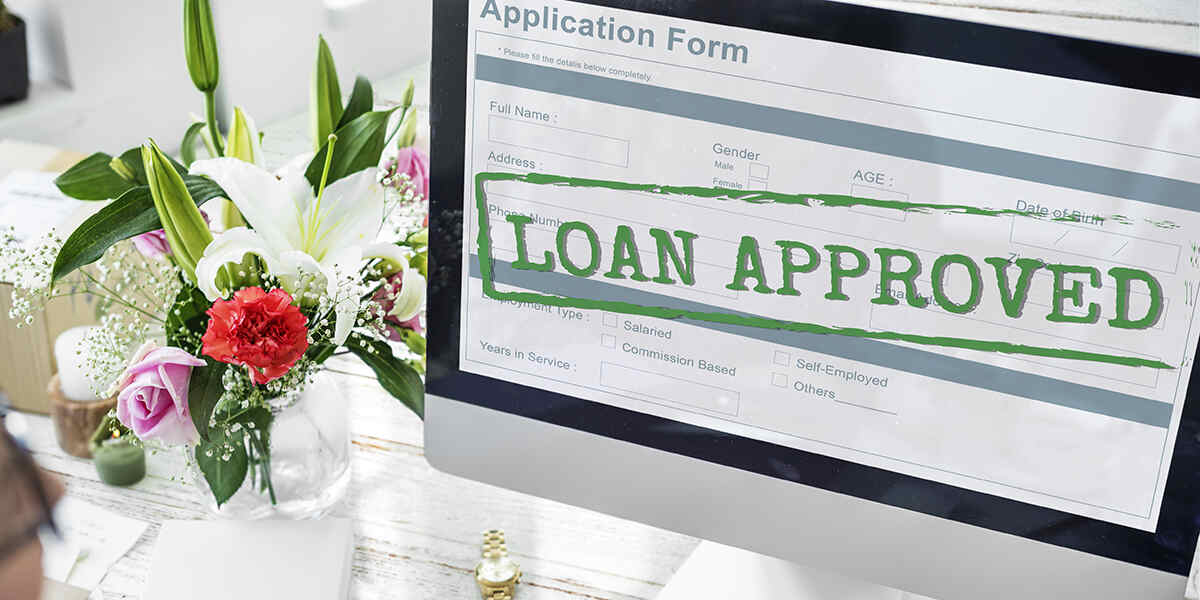Applying for a mortgage loan in Texas can seem complex initially, but knowing the steps can simplify things. This article outlines the entire process, from completing the application to finalizing the purchase of your new home. Along the way, you’ll discover the necessary documents, the functions of loan officers and underwriters, and what to anticipate at each stage. By the end, you’ll feel more equipped to handle your mortgage journey.
Understanding the Mortgage Loan Application Process in Texas
The mortgage loan application process in Texas involves several steps that applicants need to understand. It begins with filling out an application form, which can either be a short or long version, providing detailed information about personal finances and the desired property. Following this, a processor verifies employment and assets through phone verifications, collecting necessary documents like tax returns and bank statements.
Pre-approval is different from the formal application; it gives prospective borrowers an idea of how much they can borrow, often relying on initial credit checks and basic information, while the formal application demands complete documentation for underwriting. To ensure they are prepared, applicants should gather all required paperwork, including proof of income and appraisal fees, and understand that a title company will conduct a title exam to confirm the property’s status.
The closing costs will also be detailed, revealing any application fees and costs associated with processing. For additional support, clients can refer to the department’s website for a complaint form or client reviews regarding licensed mortgage companies.
Pre-approval: The First Step in Mortgage Loan Application Texas
Importance of Pre-approval
Pre-approval for home loans in Texas offers numerous benefits to potential buyers. It demonstrates to sellers that the borrower is serious and financially prepared, enhancing their likelihood of having offers accepted. When a borrower is pre-approved, it can accelerate the mortgage loan process since the processor has already assessed personal finances and assets, streamlining the preparation of necessary paperwork for the loan program.
This includes conducting phone verifications of employment, which enables quicker conditional approval. With pre-approval, buyers are in a stronger negotiating position as they have evidence of their financial capability and a clear understanding of their budget. This allows them to concentrate on properties that meet their specifications, such as relevant acreage and anticipated closing costs.
Moreover, collaborating with a licensed mortgage company facilitates a seamless process, with the title company and closing agent working in harmony to manageappraisal fees and required documents, including a title exam. During this process, borrowers can view client reviews and submit a complaint form via the department’s website if any issues occur, enhancing the overall experience with increased clarity.
Required Documents for Pre-approval
For pre-approval in Texas, borrowers need to provide specific personal identification documents, like a copy of their driver’s license. The mortgage loan application form will request proof of income, typically through the most recent pay stub, two years of tax returns, and two months of bank statements. Applicants may also need to supply details about their assets, including the latest quarterly statement for retirement or investment funds.
Sometimes, underwriters may ask for additional documents during processing, especially if discrepancies arise. This could include information related to employment, such as a phone verification from the employer. Being aware of typical closing costs, including appraisal fees and application fees, is also beneficial for applicants. The title company conducts a title exam to ensure the property’s title is clear, while a licensed mortgage company will guide borrowers through the mortgage loan process.
As outlined on the department’s website, completing a complaint form might be necessary for issues related to the recovery fund.
Submitting the Mortgage Loan Application
Choosing the Right Lender
Borrowers should evaluate several factors when assessing different mortgage lenders. These include interest rates, lending programs, and the responsiveness of the loan originator. Checking client reviews and confirming that the lender is a licensed mortgage company gives insight into their reputation and reliability. It’s also important to examine processing times and whether they provide conditional approval quickly, often within 24-48 hours.
Additionally, comparing application fees, appraisal fees, and closing costs like insurance and title exam fees is necessary. Understanding the necessary paperwork—such as income and employment documentation, assets, and phone verifications—can help streamline the mortgage loan process. Borrowers should also familiarize themselves with the complaint form and the department’s website to know their rights.
Finally, checking if the lender contributes to the recovery fund can offer reassurance. By considering these elements, borrowers can make informed choices about their mortgage loans.
Filling Out the Application
When completing the mortgage loan application in Texas, borrowers must accurately provide personal finances, employment history, and asset information. The application form includes details on the desired loan program, which requires the correct paperwork for processing. To prepare for questions about financial history, applicants should gather documentation such as tax returns, pay stubs, and bank statements to support their claims.
It’s also important for borrowers to document any appraisal fees and understand the closing costs they may encounter. To prevent common errors, applicants should verify their information for accuracy and ensure no fields are left blank. Missing details can cause delays or result in rejection from underwriters. Effective communication with the licensed mortgage company and understanding the appraisal process is necessary. Lastly, those with complaints should submit a complaint form via the department’s website if issues arise.
Mortgage Rates and Their Impact
Current Trends in Mortgage Rates
Mortgage rates in Texas have recently experienced notable changes, affecting how borrowers approach home loans. With rates fluctuating, buyers may find it more challenging to afford their ideal homes, especially when considering closing costs and appraisal fees added to the overall expense. Compared to previous years, current trends reflect a tighter market where personal finances are significant in securing competitive rates and acceptable loan programs.
Factors such as employment rates, inflation, and global economic conditions drive these fluctuations. For homebuyers, a licensed mortgage company assists throughout the loan process by reviewing the application form and gathering the necessary paperwork. As part of the process, processors conduct thorough phone verifications to confirm borrowers’ assets and income, while underwriters evaluate the complete financial picture before issuing conditional approval.
Additionally, the title company ensures a smooth transition of ownership, including a title exam to verify a clear property title.
Factors Influencing Rates in Texas
Economic indicators, including employment rates and inflation, significantly affect mortgage rates in Texas. When employment is stable, borrowers tend to feel more secure in their finances, leading to higher demand for home loans. Local housing market conditions, such as home availability and property demand, also influence interest rates. When there are fewer homes for sale, prices may increase, prompting lenders to raise mortgage rates in response.
Texas regulations contribute to this process; state laws can shape the mortgage loan experience, including requirements for paperwork and fees.
Documentation Requirements for Mortgage Loan Application Texas
Personal Identification Documents
When applying for a mortgage loan in Texas, applicants typically need to provide personal identification documents, such as a copy of their driver’s license, to verify identity and match information on the application. Borrowers should check their documents against the requirements specified by the mortgage company or lending institution to ensure they have the necessary paperwork ready.
If an applicant does not have a standard form of ID, they should gather alternative identification forms, like a passport or state-issued ID, and reach out to their lender for guidance.
Additionally, applicants may need to submit documentation related to their personal finances, assets, employment, and property during the mortgage loan process, which encompasses multiple steps, including underwriting and appraisal. If any issues arise, such as the need for more information or clarifications, underwriters may conduct phone verifications and request further documentation. Understanding the guidelines from the department’s website and obtaining a complaint form can assist in addressing concerns. Making sure all documentation is accurate and complete helps streamline processing and leads to successful conditional approval.
Proof of Income and Employment
For a mortgage loan application in Texas, borrowers must provide various documents as proof of income, such as recent pay stubs, W-2 forms, and tax returns. This information helps the mortgage company review personal finances and assess the applicant’s ability to manage closing costs and loan repayments. To verify employment, phone verifications are often made directly to the applicant’s employer, ensuring that the applicant is currently employed.
Underwriters may also request additional information, like a detailed account of assets or further documentation about the specific loan program to which the applicant is applying. This could include related appraisal fees or information regarding acreage if applicable. As part of processing, a licensed mortgage company will examine all records and may involve a closing agent for final review before issues such as conditional approval are granted.
The applicant may need to fill out a complaint form if issues arise, which can be accessed through the department’s website for further guidance on the recovery fund if necessary.
Underwriting Process in Texas
In Texas, underwriters assess mortgage loan applications by reviewing a borrower’s finances, income, employment, assets, and credit history. They require documents like tax returns, bank statements, and pay stubs to ensure accuracy through phone verifications. After evaluating these details, underwriters provide conditional approval, outlining any additional items needed to complete funding.
Texas has specific regulations that may differ from other locations, particularly regarding title examinations and local laws, leading to a distinct process. Borrowers should be mindful of typical issues, such as potential delays caused by missing documents or inquiries about property size. Closing costs, process steps, and insurance information are also significant during this phase. If any challenges occur, borrowers can submit a complaint form to the department’s website.
It is beneficial to collaborate with a licensed mortgage company and mortgage loan originator to navigate the mortgage process effectively and reduce complications with the lender or title company.
Closing the Loan: Final Steps in the Process
Before attending the loan closing, borrowers need to gather important documents like the application form, proof of assets, and employment verification. They should also expect costs such as closing fees, application fees, and appraisal fees. The processor and underwriters will review these documents to ensure everything is prepared for the lending process. During the final loan closing, the closing agent will explain all terms, ensuring borrowers fully understand their mortgage agreement.
This includes a title exam by the title company to confirm that the property is free from liens. After closing, borrowers need to monitor their finances and file any complaint forms at the department’s website if needed.
Additionally, they should regularly review documents related to the mortgage, such as insurance policies and statements from their licensed mortgage company, to ensure compliance with all conditions. This diligence helps protect their investment and address any potential issues that might arise with their home loans.
Tips for a Successful Mortgage Loan Application
To present their financial history effectively, borrowers should gather all necessary documents, such as tax returns, W-2s, pay stubs, and bank statements, to show their personal finances. They can enhance their credit scores by paying off debts and ensuring all bills are paid on time before submitting their application form.
Common mistakes to avoid include providing incomplete or incorrect information that may delay processing; ensuring all proper paperwork is submitted helps maintain a smooth process. Applicants should also be aware of employment stability, as underwriters review job history closely. When closing costs are involved, understanding the breakdown of application fees, appraisal fees, and how a title company operates is advantageous. Lastly, clients can access the recovery fund and complaint form on the department’s website for any issues encountered during the mortgage loan process.
In this context, a licensed mortgage company and mortgage loan originator provide guidance every step of the way, including during phone verifications and the appraisal process conducted by the appraiser.
Potential Challenges in Mortgage Loan Application Texas
Applicants may encounter various challenges during the mortgage loan application process in Texas. Issues often include difficulties gathering personal finances, such as assets and employment verification. If a borrower’s credit history shows late payments or high debt, this can lead to complications with the mortgage company. Underwriters assess credit histories as part of the overall mortgage loan process.
Additionally, changes in employment status, like job loss or changes in income, can also affect the outcome. Lenders rely on consistent employment to ensure borrowers can meet the required application fees and closing costs. The appraisal process, managed by an appraiser, is another area that can present challenges, especially if the property’s value doesn’t align with the loan program’s expectations. If issues arise, conditional approval might be delayed, leading to further complications.
Moreover, the title company’s title exam is significant; any problems can cause a hold-up. Borrowers should review the department’s website for additional support, including filing a complaint form for any grievances.
FAQ
What documents are required for a mortgage loan application in Texas?
To apply for a mortgage loan in Texas, you’ll need a government-issued ID, Social Security number, proof of income (pay stubs, W-2s), bank statements, and details of debts and assets. Additionally, provide property information and any gift funds, if applicable.
How long does the mortgage loan application process typically take in Texas?
The mortgage loan application process in Texas typically takes 30 to 45 days. To expedite, gather documents like pay stubs and tax returns early, and stay in regular contact with your lender for updates.
What steps are involved in the mortgage loan application process in Texas?
The mortgage loan application process in Texas involves the following steps: gather financial documents (pay stubs, tax returns), pre-qualify with a lender, complete the application, submit required paperwork, undergo underwriting, and finalize closing documents. Example documents include bank statements and proof of employment.
Are there any specific eligibility requirements for mortgage loans in Texas?
Yes, eligibility requirements for mortgage loans in Texas typically include a minimum credit score (often 620+), a stable income, and a debt-to-income ratio below 43%. First-time homebuyer programs may also require specific training courses. Check with lenders for exact criteria.
What should I expect during the underwriting process of my mortgage loan application in Texas?
During the underwriting process, expect document requests for income verification, asset details, and credit history. Provide recent pay stubs, bank statements, and tax returns promptly. Be prepared for potential additional documentation to expedite approval and clarify any discrepancies in your application.
Navigate the mortgage loan application process in Texas with ease. Contact Champions Mortgage for a comprehensive guide and expert support every step of the way. Let’s make your journey to homeownership smooth and successful!







